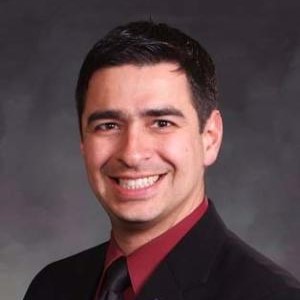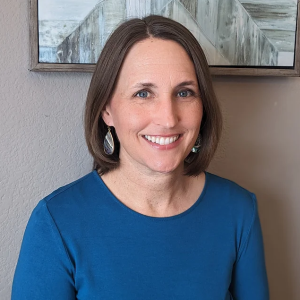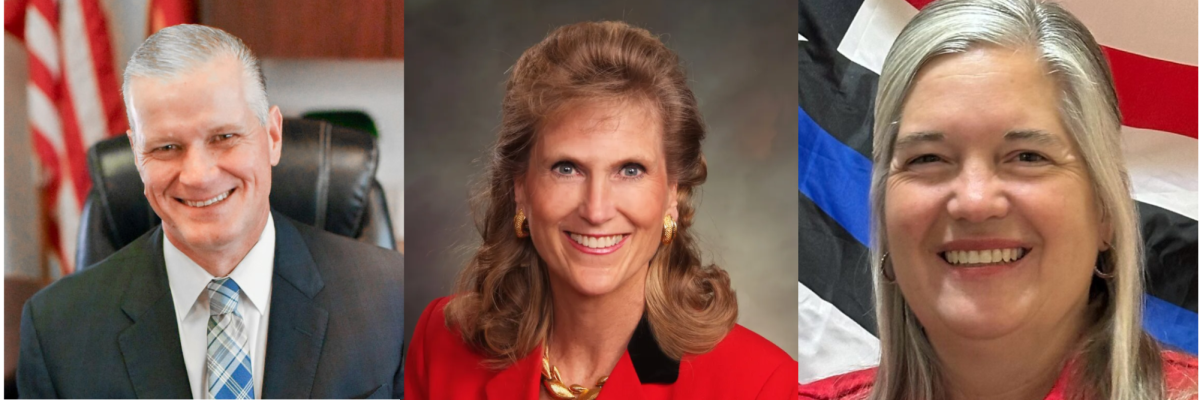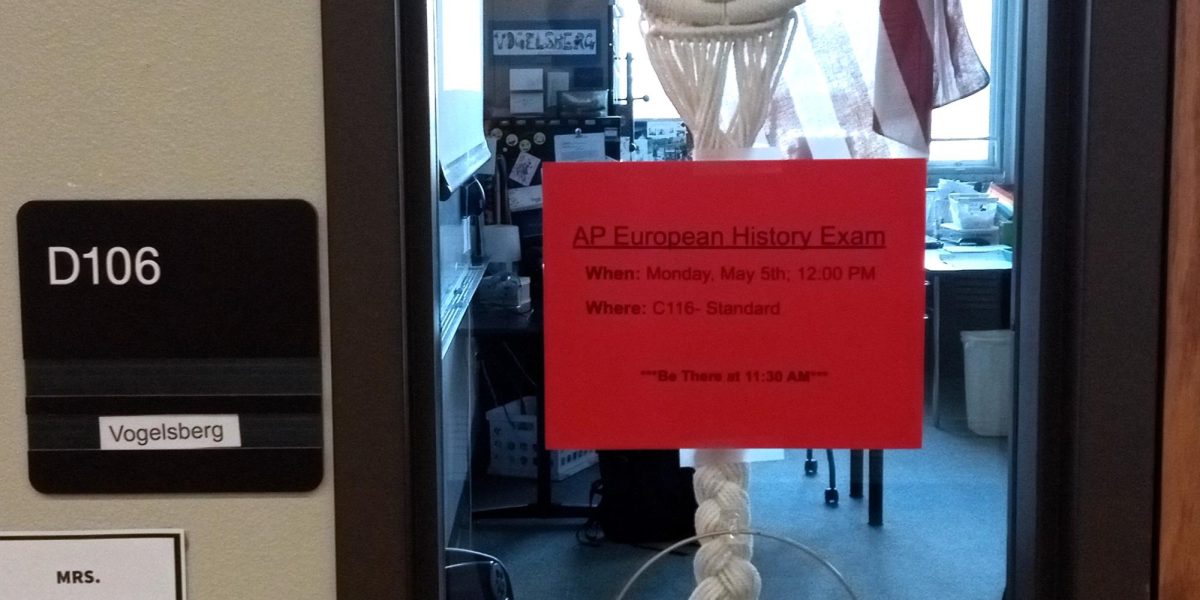Lots of people are needed to make government run well–no one wants their representative to have so many constituents that their voice gets lots in the crowd. Colorado has twelve representatives in the federal government: the president and vice president, two senators, and eight House representatives. The Colorado state government has far more elected representatives: one governor, one lieutenant governor, one secretary of state, one state attorney general, 35 state senators, 65 state house representatives, nine board of education members, and nine University of Colorado regents. There are hundreds more local officials, from District Attorneys and special district board members to local mayors and trustees to the sheriff, clerk, and commissioner for each of Colorado’s 64 counties.
This article will break down the names and most of the face of the people up for election this year. This list of candidates includes only the candidates that would represent Frederick High School’s poling precinct, though we have brief mentions of folks running in nearby Longmont, Erie, Mead, Dacono, Firestone, and Fort Lupton races where some FHS students may live.
By the way, we also have articles on how to register to vote if you are 18 and haven’t done so yet and on the various ballot measures.
US President: Harris vs. Trump vs. lots of others
At the top of the ticket this year is the highly anticipated race for US President. Current President Joe Biden was set to be the Democratic nominee after sweeping the Democratic primary elections, but after a disastrous late June debate performance against past election rival Donald Trump, Biden withdrew himself from the presidential race and endorsed his running mate, current Vice President Kamala Harris. The Democratic National Committee embraced this change and made Harris its new presidential nominee. As her running mate, Harris selected Tim Walz, the current governor of Minnesota.
Challenging Harris for the presidency is Republican nominee Donald Trump, who previously served as the 45th President of the United States. Mike Pence, Trump’s Vice President from his first term, declined to support Trump in another bid for the White House. Instead, Trump’s 2024 running mate is James David (J.D.) Vance, a former venture capitalist and the junior US Senator from Ohio.
For more about the contest between Harris-Walz and Trump-Vance, including the backgrounds of the candidates and their views on major issues, read this article.
In addition to the Democratic and Republican nominees, six other names will appear on the ballot for the presidential contest:
- Blake Huber & Andrea Denault for the Approval Voting Party
- Chase Russell Oliver & Mike ter Maat for the Libertarian Party
- Jill Stein & Rudolph Ware for the Green Party
- Randall Terry & Stephen E Broden for the American Constitution Party
- Cornel West & Melina Abdullah for the Unity Party
- Robert F. Kennedy Jr. & Nicole Shanahan running without a party

The most notable of these names is the last: Robert F. Kennedy Jr. is the son of late Attorney General Robert F. Kennedy, who was the younger brother of John F. Kennedy, the 35th President of the United States. After the Democratic Party prevented Kennedy from running in their primary contests, RFK Jr. announced a third-party bid on October 9, 2023. While he was polling around 10% nationally in May, Kennedy’s electoral prospects fizzled over the summer as he received criticism for his anti-vaccine activism, his extramarital affairs and assault allegations, claims that a worm ate part of his brain, and his treatment of wild animals (stories broke about him eating a barbequed dog, beheading a beached whale, and using a bear corpse to play a prank on New Yorkers). On August 23, Kennedy suspended his campaign and endorsed Trump. While he is no longer campaigning to win votes, Kennedy is still on the ballot and is still eligible to be elected.
Colorado also allows a write-in option for the president and vice president. However, you just can’t write anything in the ballot space. To be counted, a candidate needs to register as an “official write-in candidate.” This year, the accepted write-in candidates include:
- Chris Garrity & Cody Ballard, no party affiliation
- Claudia De la Cruz & Karina García for the Socialism and Liberation Party
- Shiva Ayyadurai & Crystal Ellis, no party affiliation
- Peter Sonski & Lauren Onak for the American Solidarity Party
- Bill Frankel & Steve Jenkins for the Republican Party
- Brian Anthony Perry & Mark Sbani for the Democratic Party
US House, District 8: Caraveo vs. Evans
In the US House, District 8, incumbent Democrat Yadira Caraveo is being challenged for her seat in Congress by Republican Gabe Evans, Chris Baum of the Approval Voting Party, and Susan Patricia of the Unity Party. District 8, which stretches from Westminster to Greeley, was created by the state’s independent districting committee to be the most competitive seat in Colorado. The district has the largest Latino population of all eight districts and has an almost equal number of registered Democrats and Republicans.

Caraveo is a freshman representative first elected to federal office in 2022. Caraveo was born in Denver to undocumented parents who came to Colorado from Mexico and became US citizens in 1986. Caraveo and her three siblings attended public school in Adams County; she later received a degree from Regis University before going to medical school at the University of Colorado. After graduating with her medical license, Caraveo became a pediatrician in near where she grew up, with most of her patients on Medicaid and other government assistance. After watching many of her patients fall through the gaps in the social safety net, Caraveo ran for the House District 31 seat in the Colorado General Assembly. She served two terms in state government before her first run for Congress. Caraveo is unmarried and has no children.
While her first year in Congress was the second-most unproductive in history, one of the 40 laws passed that year was written by Caraveo and co-sponsored by Republican Mike Collins (GA 10): the Testing, Rapid Analysis, and Narcotic Quality (TRANQ) Research Act, which directed government funds and research to how xylazine, an animal tranquilizer and frequent additive to illegally produced fentanyl, affects the human body. She sits on the House Committees on Agriculture and Science, Space, and Technology. Three-quarters of the bills she proposes or co-sponsors concern healthcare and agriculture, she votes against the Democratic House leadership 8.5% of the time (more than any other Colorado Democrat), and she was the only Colorado representative to not miss a single vote during the two-year term.
Caraveo also brought over $120 million in federal project spending back to District 8, which was used to repair water lines in Brighton, Evans, and Westminster; a water treatment plant in Commerce City; an airport complex in Greeley; repairs to the Boys and Girls Club of America facility in Greeley; home repair assistance in Frederick; and road projects in Greeley, Commerce City, Thornton, Mead, and Dacono.
Caraveo supports tying housing assistance to economic affordability instead of income, giving grants to local food producers so they can compete with larger grocery chains, lowering drug prices by informing consumers how much a company upcharges them for prescriptions, end partisan gerrymandering nationwide, preventing Congress members from trading stocks (a bill she co-sponsors with JD Vance), increasing security on the southern border, and creating more pathways to legal status and citizenship for migrants. She has received $855,000 in PAC money for this election and is endorsed by the National and State Democratic Party leadership, the American-Israel Public Affairs Committee, Planned Parenthood, the AFL-CIO, and the University of Colorado.

Gabe Evans is a Colorado native and the grandson of Mexican immigrants. He spent 12 years serving in the US Army and Colorado Army National Guard as a UH-60 Black Hawk helicopter pilot and company commander. As part of his military service, he saw combat in the Middle East and earned a bachelor’s degree in government and strategic intelligence from Patrick Henry College. After his Army service, Evans was an Arvada police officer for a decade and volunteers multiple times to assist in fighting Colorado wildfires. He has a wife and two sons.
Evan first ran for public office in 2022 and won the House District 48 seat in the Colorado General Assembly. In his time in the Colorado General Assembly, he has sponsored five bills: all had bipartisan sponsorship yet only two became law.
Evans supports reducing construction regulations to increase housing, forcing Congress to have a balanced budget each year and punishing Congress if they cause a shutdown, build Trump’s border wall, stopping exports of American energy to countries with lower environmental standards than the US, using public taxes to create a school voucher system, bringing back the option to have physical punishment in schools, unqualified immunity for police, dismantling firearms regulations, and would support a state (but not national) ban on abortion except in case of rape, human trafficking, incest, or risk to the life of the mother. He has received $200,000 in PAC money for this election and is endorsed by the National Republican Party leadership but not the State leadership, the Colorado Libertarian Party, former president Donald Trump, former Colorado governor Bill Owens, and Speaker of the House Mike Johnson. Both 2/3 of his campaign finances and Caraveo’s finances come from outside the state, and both have a similar percentage of small-dollar donors living in the district.
Chris Baum with the Approval Voting Party is an interior designer who served for 20 years in the Navy; he supports getting rid of most trade regulations, eliminating federal departments to create a smaller government, and reforming our voting system. Susan Patricia with the Unity Party is a former teacher who stands for introducing term limits for Congress, eliminating federal income tax, requiring a balanced federal budget, and a national ban on political gerrymandering.
US Senate: No Race in Colorado
Senators are elected for six-year terms, and neither Colorado Senator has a term expiring this year. Senator John Hickenlooper‘s first term expires in 2026, and Senator Michael Bennet‘s third term expires in 2028.
General Assembly, State House District 19: McMillan vs. Woog
Democrat Jennifer Lea Parenti is the current representative for State House District 19. While she won the Democratic primary in her district, she announced that she was dropping out of the race due to disillusionment from the rampant influence of special interests on state elected officials.

A Colorado Democratic Party committee replaced Parenti with Jillaire McMillan. McMillan lives in the Weld County portion of Longmont and runs a small robotics business with her husband. McMillan has had previous leadership experience as a PTA president in St. Vrain Valley Schools and leader for the Colorado branch of the Mormon Women for Ethical Government. McMillan is an advocate of gun violence prevention, expanding access to healthcare services, increasing teacher pay, and bipartisan legislation. She believes her master’s degree in American History has given her a strong foundation of how government works, and her experience as a progressive in a conservative church ward has given her experience in working with others that disagree with her in a civil and respectful manner.

Her opponent is Republican Daniel Woog, who also ran against Parenti in 2022 and lost to her by a little over 1,000 votes. Woog lives in Erie and owns a property management company. Woog previously was the Colorado State House Representative for District 63 from 2020 to 2022, and he has been a former Town of Erie trustee. Woog is an advocate of increased policing, strict immigration enforcement, reducing housing and construction costs, and increasing teacher pay. He believes his past record in the Colorado house shows that he is the leader the district needs: during his term, he sponsored Bill HR1003 (which extended property tax reductions to Gold Star spouses), HB1029 (which increased state funding for the public teacher’s retirement fund), SB005 (which gave $3 million to police officer training programs), HB1282 (which provide grants for efficiently-built housing), HB1168 (which provided hunting education classes for seventh graders), and HB1140 (which would have increased the use of clean hydrogen power in the state).
For Frederick students living outside the school boundaries, this race may be substituted on your ballot with the House District 11 race between incumbent Democrat Karen McCormick and challenger Republican Kathy Reeves (Longmont area); the House District 64 race between incumbent Republican Ryan Armagost and Democrat challenger Dr. Mark Matthews (Mead area); or the House District 48, where incumbent Republican Carlos Barron is running unopposed (Fort Lupton area).
General Assembly, State Senate District 35: Kirkmeyer vs. Bobko
Republican Barbara Kirkmeyer is defending her state senate seat from challenger Joseph Babko, who is running as a Democratic write-in candidate (meaning he wants to represent the Democrats in the state senate but does not have the state party endorsement).

Barbara Kirkmeyer is a native of Weld County and earned a bachelor’s degree in physical education in 1980. After co-owning and operating a dairy farm and a flower shop for 15 years, Kirkmeyer entered politics as Weld County Commissioner for District 3 for 19 years between 1993 and 2020. Kirkmeyer took an eight-year break from serving as a commissioner to serve as the Executive Director of the Department of Local Affairs under Governor Bill Owens. In 2020, Kirkmeyer was elected to her current state senate seat. Kirkmeyer is married with two daughters and six grandchildren.
In the four years she has served in the Colorado General Assembly, Kirkmeyer has been the primary sponsor of 80 bills, 65 of which became law—this is more than any other Republican in the current General Assembly. Among these bills are SB24-142, which will introduce oral health screenings in public schools; SB23-241, which created the State Office of School Safety; and SB23-099, which increased state funding for special education. She is also the current Minority Whip for the state senate (the leader in charge of making sure the members of her party attend important votes).
While Kirkmeyer is one of the most bipartisan legislators in the Colorado General Assembly, she is by no means a moderate: she supports reducing laws that regulate firearms, the complete banning of abortion without exceptions, schools moving to a voucher system, small business development, fracking, eliminating deficit spending, lowering property taxes, closing the southern border to immigration, and oil and gas development. She is endorsed by the National Rifle Association and Colorado Republican Party.
Kirkmeyer’s opponent Joseph Bobko (no public photo available) is a former auto mechanic from California who enjoys playing guitar and working on Mercedes-Benz automobiles. He has a wife and two daughters from his first marriage. Bobko supports creating a special police force to protect schools from active shooter situations, lowering property taxes, creating price controls for grocery items, increasing the minimum wage, eliminating social security taxes, unfettered access to abortion services, and turning empty warehouses into homeless shelters, which would be funded by imposing a large impact tax on Amazon. Bobko is not endorsed by the Democratic Party despite running in their name because he did not want to be beholden to the party platform. He is endorsed by Colorado Families for Vaccines.
For Frederick students living outside the school boundaries, this race may be substituted on your ballot with the Senate District 17 race between incumbent Democrat Sonya Jaquez Lewis and challenger Republican Tom Van Lone (Longmont and Erie area) or the Senate District 13 open race between Democrat Matt Johnson and Republican Scott Bright (Fort Lupton area).
State Board of Education, District 8: Solis vs. Navarro
Each federal congressional district in Colorado gets a representative to the the State Board of Education. These representatives serve six-year terms. In District 8, Democratic incumbent Rhonda Solis is being challenged for her seat by Republican Yazmin Navarro. Both are bilingual women from a Latino background.

Rhonda Solis is a Colorado native who graduated from Greeley West High School. She spent eight years on the Greeley-Evans School District 6 Board of Education before gaining her seat on the state BOE in 2022. Solis advocates for making school districts more accountable to their communities, their teaching staff, and guidelines set by the Colorado Department of Education (CDE). During this next term, the CDE will re-evaluate state standards regarding science and health: Solis believes that evolutionary biology and comprehensive sexual education (not just abstinence-only education) should be standard across the state. She believes in giving school districts local control over whether they allow open enrollment or not, is against banning books from school libraries, and believes that all children in Colorado deserve access to a good public education regardless of their immigration status. She has been endorsed by four of the current BOE members, the Colorado Educational Association, the Colorado Association of School Executives, and Dr. Don Haddad, superintendent of SVVSD.

Republican challenger Yazmin Navarro is a parental rights advocate and a former English Language Learner program coordinator. Navarro desires universal school choice across all Colorado districts. She also believes that the state should give parents the right to opt their children out from any content that conflicts with their personal values, including but not limited to science and health topics; to this end, she would ensure that state standards would not require that evolutionary biology or sexual education be mandatory. Navarro is a firm believer in restricting student access to books with controversial content and in expanding private and charter schools. She has been endorsed by two of the current BOE members and Weld County Commissioner Perry L. Buck.
CU Regent, At-Large: Rinard vs. Hood vs. Reasoner vs. Cole
The University of Colorado is governed by a board of nine regents, one for each federal congressional district and one at-large member elected by the entire state. These regents control the university’s budget, hire the university president and deans, and set tuition costs. The at-large seat is up for election this year, and current Democratic incumbent Lesley Smith is stepping down to run for Colorado House District 49. Four candidates are running in this open race: Eric Rinard of the Republican Party, Elliott Hood of the Democratic Party, T.J. Cole of the Unity Party, and Thomas Reasoner of the Approval Voting Party.
Republican Eric Rinard promotes “Competence, Cooperation, and Common Sense.” A CU Boulder alumnus, he works as a electrical engineer and vice president of a Denver charter school. As a regent, he wants to reduce tuition costs and expand the different types of research programs offered at CU. Rinard has been endorsed by the Colorado Young Republicans and four current members of the board of regents. He has a wife and four children.
Democrat Elliott Hood is also a CU Boulder alum. He taught fifth grade for a low-income community for several year before becoming a school attorney representing teachers and students in safety and discrimination cases. Hood is the Chair of the Boulder Parks and Recreation Advisory Board and is on the board of directors of the I Have a Dream Foundation of Boulder County. As a regent, he wants to make CU more affordable and accessible to nontraditional students, improve graduation and retention rates, push CU to be more environmentally sustainable, support unions for student workers, and promote diversity and inclusion programs on campus. Hood has also been endorsed by four current members of the board of regents as well as Governor Jared Polis, Senators Bennett and Hickenlooper, the Colorado Education Association, and the American Federation of Teachers. He has a wife and two children.
Tijani “T.J.” Cole is the current Chair of the Colorado Unity Party, a former Boulder District Court judge, and the founder of Denver Justice High School, a charter high school for at-risk students. While he never studied at CU, he holds several degrees. As a regent, he would work to increase diversity among the student population and faculty of all CU schools.
The Lantern staff could find no public information on Thomas Reasoner, the candidate for the Approval Voting Party.

District Attorney Judicial District 19: Rourke
Republican Michael J. Rourke is running unopposed for re-election.
For Frederick High students living in Longmont, this race may be substituted with the Judicial District 20 race for District Attorney. Like the District 19 race, the D.A. candidate for this district (Democrat Michael T. Dougherty) is running unopposed for re-election.
Weld County Commissioners: Buck, Peppler, and Reck vs. Leisy
Republican Perry L. Buck of Greeley, who is a former General Assembly representative and ex-wife of former US House Representative Ken Buck, is running unopposed for Weld County Commissioner at Large.
Frederick, Firestone, and Mead are in Weld County District 2, and their current commissioner (Scott James) is not up for re-election this year. However, Frederick High students who live in Longmont, Erie, Dacono, or Fort Lupton may live in Weld County District 1, where Republican and former Marine Lynette “Kilpatrick” Peppler is running unopposed for District 1 Commissioner.
Those in Weld County District 1 also get to vote this year for their Weld County Council member. Republican Jeff Reck is the owner of an oil and gas business who grew up on a farm in LaSalle and lives in Eaton. Unaffiliated Far-Right Trent Lane Leisy is a current member of the Weld County Council, a former Navy veteran, and a seed seller living in Windsor. Leisy has a distraint warrant for nonpayment of his 2022 state income taxes.
For Frederick High students living in Boulder County, they may get to choose between incumbent Democrat Marta Loachamin and Republican challenger Don Lewis for their District County Commissioner if they live in District 2 (which includes Longmont but not Erie). They also have the opportunity to vote for Democrat Jeff Martin, who is running unopposed for County Coroner.

City of Dacono Mayor: Morehead vs. Spagnuolo
Current Dacono Mayor Adam Morehead is seeking a second term. Morehead, a former law enforcement officer who has lived in Dacono since 2016, wants to develop more residential areas in Dacono once the city secures long-term water resources. He has spearheaded the development of the future city center that was at the heart of the controversy two years ago when the Dacono board of trustees fired City Manager A.J. Euckert without cause or public comment, prompting a recall election (Morehead was not involved in dismissing Euckert or the subsequent recall efforts).
Challenger Daniel Spagnuolo is retired landscaper who has lived in Dacono for 25 years. As mayor, he want to bring commercial development to Dacono to stimulate the town economy and increase growth in the area. Spagnuolo hopes that increased business paying business taxes will allow Dacono to lower its mill levy level to make home ownership more affordable.
Residents of Dacono also have the option of voting for either or both Michelle Rodgers and Jeff Stainbrook for Dacono City Council.
Judges for Judicial District 19: Crowther, Esser, and Taylor
Three of the seven Colorado Judicial District 19 judges are on the ballot for retention. Judicial District 19 encompasses the entirety of Weld County and oversees all divorce/custody cases, juvenile cases, and criminal cases. The judges of each district court are appointed by the governor to serve a two-year term. At the end of that term, voters can choose to retain the judge for another term (this time for a term of six years) or dismiss them. Recommendations on each judge’s performance are given to the public through the annual Judicial Performance Evaluations section of the Colorado Blue Book. If a judge is dismissed, the governor fills the vacancy.
Anita J. Crowther was appointed to serve District 19 in 2022 and is up for election to her first full term. Crowther oversees a docket split between domestic disputes and dependency/neglect cases. She previously spent eight years as a prosecutor for the Adams and Weld District Attorney’s Offices. The State Commission on Judicial Performance found that Crowther meets performance standards by a 7-0 vote and commends Crowther for seeing “the importance in using plain, easy to understand language in
her written orders.”
Allison J. Esser was appointed to serve District 19 in 2021 and is also up for election to her first full term. Esser oversees a docket that concerns adult criminal charges. Esser previously worked at the Colorado Public Defender’s Greeley office and as a housing and eviction rights attorney for Colorado Legal Services. The State Commission on Judicial Performance found that Esser meets performance standards by a 8-0 vote, and while the commission notes that Esser is “doing a great job,” they note that Esser has some issues with keeping control over her courtroom and serving orders in a timely manner.
Todd L. Taylor was appointed to serve District 19 in 2010 and is up for election to his third full term. Most of Taylor’s docket concerns water rights and similar civil cases. Taylor previously served as a municipal judge in Gilcrest and as a deputy district attorney. The State Commission on Judicial Performance found that Taylor meets performance standards by a 8-0 vote and writes that they are ” “impressed with Judge Taylor’s demeanor and fairness.” For some reason, they also commend him for volunteering to DJ at local events in Greeley.
For Frederick High students living in Boulder County, these justices may be swapped out on your ballot for the District 20 judges J. Keith Collins, Robert R. Gunning, and Dea Marie Lindsey (all of whom meet performance standards by a unanimous vote).

Colorado Appellate Justices: Dunn, Jones, Kuhn, Román, and Schutz
Five judges on the Colorado Court of Appeals, the court directly under the Colorado Supreme Court and above the Colorado District courts, are up for election this year. The appellate court has one member for each of Colorado’s 22 district courts, each appointed by the governor to serve an two-year term. At the end of that term, voters can choose to retain the judge for another term or eight years. Like district judges, the Blue Book provides recommendations on each judge’s performance.
Stephanie Dunn was appointed to the Colorado Court of Appeals in 2012 and is up for election to her second full term. Dunn is a liaison to Colorado’s District 8 Court (Fort Collins) and previously clerked for Colorado Supreme Court Chief Justice Luis Rovira. The State Commission on Judicial Performance found that Dunn meets performance standards by a 10-0 vote and writes that “her opinions are thoughtful and she has an excellent judicial demeanor.”
Jerry N. Jones was appointed to the Colorado Court of Appeals in 2006 and is up for election to his third full term. Jones is a liaison to Colorado’s District 7 Court (Gunnison) and previously served as Chief of the Appellate Division for the US Attorney’s office. The State Commission on Judicial Performance found that Jones meets performance standards by a 10-0 vote and that he “writes
clear legal opinions based upon the facts and law” but is “both commended and criticized concerning his
perceived demeanor” (only 75% of lawyers surveyed felt Jones was impartial and fair).
W. Eric Kuhn was appointed to the Colorado Court of Appeals in 2021 and is up for election to his first full term. Jones is a liaison to Colorado’s District 6 Court (Durango) and previously served as Senior Assistant to the Colorado Attorney General for 11 years. The State Commission on Judicial Performance found that Jones meets performance standards by a 10-0 vote and that his opinions are “timely, clear, and well-reasoned.”
Gilbert M. Román was appointed to the Colorado Court of Appeals in 2005 and is up for election to his third term. Román is a liaison to Colorado’s District 9 Court (Glenwood Springs) and currently serves as the Chief Judge of the appellate court. Román previously served as a Board Member of the Hispanic National Bar Association. The State Commission on Judicial Performance found that Román meets performance standards by a 10-0 vote and rates him as “a valuable and effective leader” of the appellate court.
Timothy J. Schutz was appointed to the Colorado Court of Appeals in 2022 and is up for election to his first full term. Jones is a liaison to Colorado’s District 22 Court (Cortez) and previously served 11 years on the El Paso County Court. The State Commission on Judicial Performance found that Jones meets performance standards by a 10-0 vote, that he has “an excellent judicial demeanor,” and commends him for “his efforts on [solving] issues surrounding race and the justice system.”

Colorado Supreme Court Justices: Berkenkotter, Boatright, and Márquez
Three Colorado Supreme Court Justices are on the ballot for retention. In Colorado, the seven justices of the highest court in the state are appointed by the governor to serve a two-year term. At the end of that term, voters can choose to retain the judge for another term (this time of ten years) or dismiss them. Like other Colorado judges, the Blue Book provides recommendations on each judge’s performance.
Maria E. Berkenkotter was appointed to the Colorado Supreme Court in 2021 and is up for election to her first full term. Berkenkotter previously served on Colorado’s District 20 Court (Boulder) for 11 years and served as the Chief Judge of that circuit for her last four years. The State Commission on Judicial Performance found that Berkenkotter meets performance standards by a 10-0 vote and describes her legal opinions as fair, impartial, and “solidly based upon the facts and law.”
Brian D. Boatright was appointed to the Colorado Supreme Court in 2011 and is up for election to his second full term. Boatright previously served on Colorado’s District 1 Court (Golden) for 12 years and served as the Chief Justice of the Colorado Supreme Court from 2021 to the end of his three-year term in 2024. The State Commission on Judicial Performance found that Boatright meets performance standards by a 8-0 vote, note his success as Chief Justice, and describes his legal opinions as “well-written and understandable.”
Monica M. Márquez was appointed to the Colorado Supreme Court in 2010 and has served as Chief Justice since June of this year when Brian Boatright’s term as Chief Justice ended. Márquez has served one full term on the court and is the first Latina and openly gay justice to serve on the Colorado Supreme Court. The State Commission on Judicial Performance found that Márquez meets performance standards by a 10-0 vote and describes her legal opinions as “clear, thoughtful, well-reasoned, and issued in a timely manner.”

Other Races Just Outside Frederick High’s Boundaries
Some Frederick High students that live in Longmont may live in Regional Transportation District I and will have the option to vote for Karen Benker for Regional Transportation District Director (she is running unopposed) and the opportunity to retain or dismiss Boulder County Court Judge Jonathon P. Martin.
Frederick High students that live in Erie will see Andrew Moore face off against Justin Brooks for city mayor. Some residents of Erie will also get to vote for Erie City Council members for their district: they can choose between John Mortellaro, Andrew Sawusch, Anil Pesaramelli, and Richard Garcia if they live in District 1; Dan Hoback, Brandon M. Bell, Dan Maloit, and Ben Hemphill if they live in District 2; or Brian O’Connor, Travis Pinz, and Emily Baer if they live in District 3.
Frederick High students that live in Mead have the opportunity to vote for three town trustees: the candidates include Chris T. Parr, Brooke Babcock, Brad Hagen, Don Smith, Jeremiah R. Crane, Wayne D. Tolliver, and Christopher Cartwright.























































